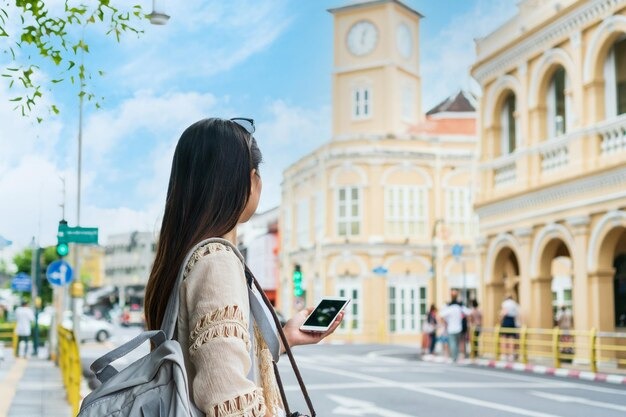How Technology Is Changing Travel
Travel has always been a dynamic industry, shaped by cultural shifts, economic trends, and technological advancements. In recent years, however, technology has emerged as the most transformative force, reshaping how we plan, experience, and remember our journeys. From booking platforms to in-trip navigation, the digital revolution has made travel more accessible, efficient, and personalized than ever before. Here’s a closer look at how technology is redefining the way we explore the world.
Simplified Planning and Booking
Gone are the days of relying solely on travel agents or printed brochures to plan a trip. Today, online platforms and mobile apps have streamlined the process, putting the power of decision-making directly into travelers’ hands. With just a few clicks, users can compare flights, accommodations, and activities across multiple providers, often with real-time updates on pricing and availability. For example, apps that aggregate flight options allow travelers to find the best deals, while platforms offering user-generated reviews help them make informed choices about hotels and attractions.
Moreover, virtual reality (VR) and augmented reality (AR) are taking trip planning to the next level. Some travel companies now use VR to let potential visitors “walk through” destinations or hotels before booking, providing a more immersive preview of what to expect. This not only builds excitement but also reduces the uncertainty that often accompanies travel decisions.
Seamless Navigation and Connectivity
Once travelers arrive at their destination, technology continues to play a pivotal role in enhancing their experience. Navigation apps have become indispensable tools, offering turn-by-turn directions, public transit schedules, and even recommendations for nearby points of interest. For instance, apps designed for specific cities provide localized insights, such as the best times to visit popular landmarks or hidden gems that might otherwise go unnoticed.
Connectivity has also improved significantly, with widespread access to Wi-Fi and mobile data enabling travelers to stay informed and connected. This has made it easier to share experiences in real time, whether through social media updates or video calls with loved ones back home. Additionally, translation apps have bridged language barriers, allowing travelers to communicate more effectively in foreign countries and enriching their interactions with locals.
Personalized Experiences
Technology has made it possible to tailor travel experiences to individual preferences like never before. Algorithms analyze user data—such as past bookings, search history, and reviews—to curate personalized recommendations for destinations, activities, and dining options. This level of customization ensures that travelers can create itineraries that align with their unique interests and budgets.
Wearable devices, such as smartwatches, further enhance personalization by tracking health metrics and activity levels during trips. For example, fitness enthusiasts can use these devices to monitor their steps while exploring a new city or to locate nearby running trails. Such tools not only add convenience but also encourage travelers to engage more deeply with their surroundings.
Enhanced Safety and Security
Safety is a top priority for travelers, and technology has introduced innovative solutions to address this concern. Mobile apps now provide real-time updates on weather conditions, emergency alerts, and health advisories, helping travelers stay informed and prepared. GPS tracking features allow users to share their location with trusted contacts, offering peace of mind to both travelers and their families.
In addition, contactless payments and digital wallets have reduced the need to carry cash or physical credit cards, minimizing the risk of theft or loss. Biometric systems, such as facial recognition and fingerprint scanning, are also being adopted at airports and border checkpoints, streamlining security processes and reducing wait times.
Sustainable Travel Solutions
As awareness of environmental issues grows, technology is playing a crucial role in promoting sustainable travel practices. Apps that calculate the carbon footprint of flights and accommodations empower travelers to make eco-friendly choices. Some platforms even offset carbon emissions by planting trees or supporting renewable energy projects on behalf of their users.
Furthermore, digital ticketing and e-documents have reduced the need for paper, contributing to a more sustainable travel ecosystem. Electric vehicles and bike-sharing programs, often facilitated by apps, provide eco-conscious alternatives for getting around cities, while virtual tours allow people to explore far-flung destinations without leaving home, significantly reducing their environmental impact.
The Future of Travel Technology
As technology continues to evolve, its impact on travel will only deepen. Emerging trends, such as the integration of artificial intelligence and the development of hyperloop transportation systems, promise to further revolutionize the industry. These advancements will likely make travel faster, more efficient, and even more personalized, opening up new possibilities for exploration and discovery.
In the meantime, travelers can take advantage of the tools and platforms already available to enhance their journeys. By staying informed about the latest technological innovations and adopting them thoughtfully, they can make their travel experiences smoother, safer, and more fulfilling. The future of travel is here, and it’s being shaped by the seamless integration of technology into every aspect of the journey.



